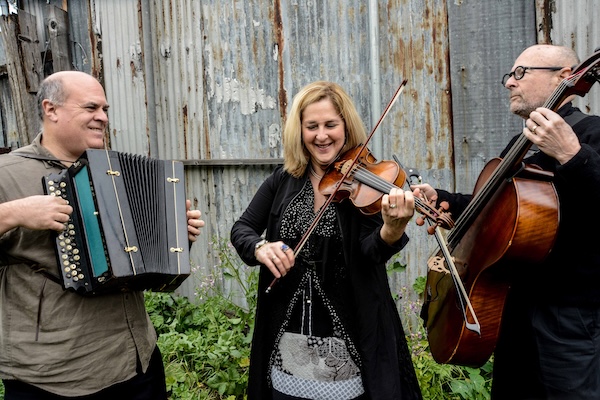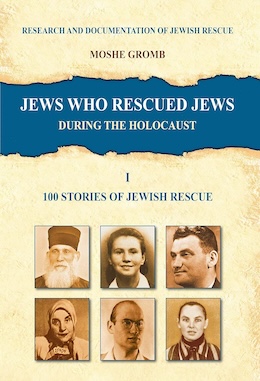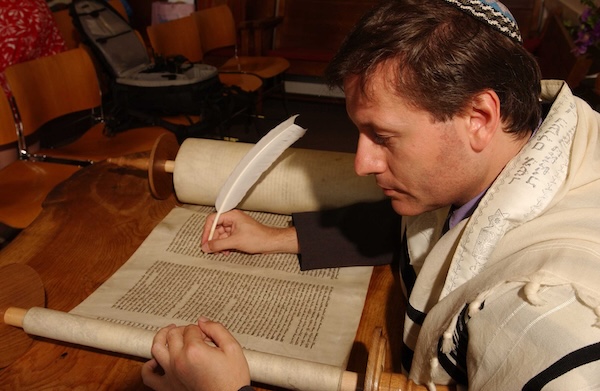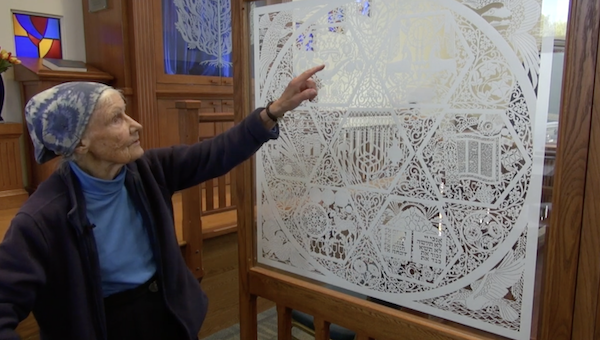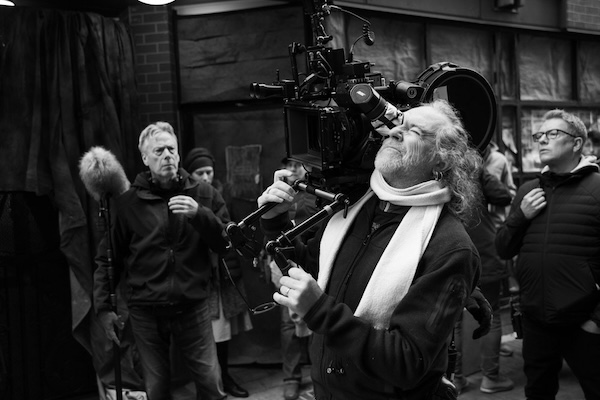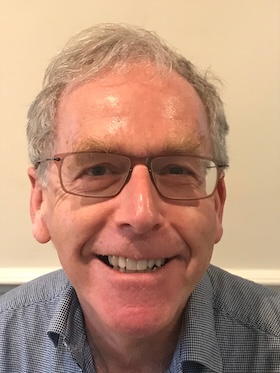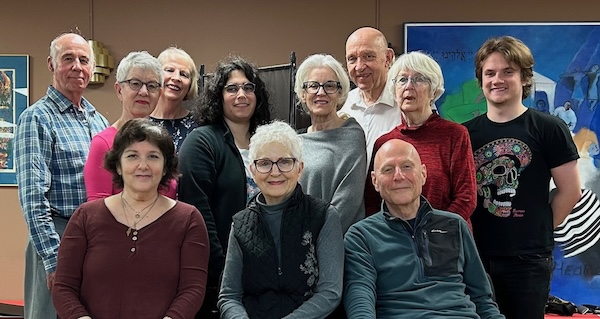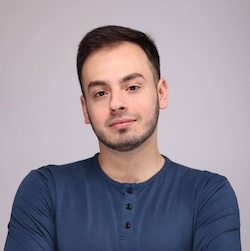Bay Area klezmer trio Veretski Pass returns to Klezcadia, which runs in-person and online June 10-15. (photo from Klezcadia)
Klezcadia, a festival of klezmer music and Yiddish culture, is back for a second year. The June 10-15 event can be experienced in-person in Victoria or virtually from around the world.
The 2025 festival, free for all who register, features author and playwright Michael Wex, who will be offering a two-part webinar titled Jews, Germans and Jive: Yiddish as a Language of Resistance.
Wex, the author of the bestseller Born to Kvetch and Just Say Nu, will be delivering the talks from his home in Toronto. No stranger to Vancouver audiences, his play, The Last Night at the Cabaret Yitesh (Di Letste Nakht Baym Yitesh), in which he also performed, closed the 2024 Chutzpah! Festival.
Laura Rosenberg, the director and driving force behind Klezcadia, said Wex “is arguably the most famous person to interpret the public impact of the Yiddish language on the English language.”
She told the Independent that the festival’s mission, operating principles and format will be the same as they were in its inaugural season. “The performance and workshop content, on the other hand, will be completely new for 2025, though obviously within the same klezmer music and Yiddish culture arena as last year, and involving many of the same artists and faculty members,” she said.
Between in-person and virtual attendees, Klezcadia had more than 500 participants from 21 countries in 2024 and the 2025 registration looks to be at least on par with those data, according to Rosenberg.
“Everything from concerts to workshops to open rehearsals is designed to equalize as much as possible the experience of in-person and virtual participants,” she said. “And, thanks to our generous donors, registration is once again free.”
Other notable appearances this year include returning Bay Area klezmer trio Veretski Pass, who will appear on both the concert and workshop rosters. Members Cookie Segelstein (violin), Joshua Horowitz (19th-century button accordion) and Stuart Brotman (bass) play a wide variety of East European numbers. This year, they will offer “band-to-band master classes” with two Victoria-based klezmer ensembles.
Vancouver singer/songwriter Geoff Berner, joined by Segelstein, will perform songs from his upcoming album – Berner’s first to be completely in Yiddish. Over the past 25 years, Berner has toured in 17 countries, opened for rock stars in stadiums and, the Klezcadia notes state, “played nearly every dirty little café bar in Western Europe.”
Klezcadia 2025 will see the Victoria debut of Jordan Wax, a rising star on the Yiddish singer/songwriter scene, who will share music from his newly released album, The Heart Deciphers, on the Borscht Beat label. The New Mexico musician blends many influences, from the Missouri Ozarks to the Indo-Hispanic world and the entire Ashkenazic diaspora.
Christina Crowder, director of the Klezmer Institute, based in Yonkers, NY, will be on hand to perform century-old music rediscovered in Ukraine’s Vernadsky Library, which recently was published for global use via the Kiselgof-Makonovetsky Digital Manuscript Project.
As it did in 2024, this year’s festival will conclude with the entire Klezcadia cohort performing a finale concert at the Stage in the Park (Cameron Bandshell) in Victoria’s Beacon Hill Park.
Billing itself as “A Safer Shtetl,” Klezcadia’s hybrid environment prioritizes the safe experience of immunocompromised and high-risk participants, for the performers, crew and volunteers, and for attendees. Indoor activities feature the use of protective protocols such as supplemental air purification, required masking and daily onsite COVID testing.
“We learned from our inaugural-season experience that our fully hybrid format was extremely valuable, both to our immunocompromised and high-risk participants, but also to a vast number of people who, for geographic or financial reasons, were unable to attend in person,” Rosenberg said.
Rosenberg gives credit to other members of the Klezcadia team for helping with the various technical tools needed to put together a hybrid festival. She said some of the evolving challenges faced in viral safety and communal safety, and the current cross-border political situation, have provided added appreciation to how much a hybrid design can be adapted at short notice, if needed.
People who were not able to attend a live event in 2024 have expressed their thanks to Rosenberg in the lead-up to this year’s festival.
“One of my greatest delights in the intervening year since our inaugural season has been hearing what a difference Klezcadia made to our immunocompromised and high-risk attendees,” she said. “Whether local or halfway across the world, many of these people have felt shut out of their communities, including their Jewish cultural communities, and they expressed in heartfelt terms how life-changing it was for them to be able to participate in a cultural festival that prioritized their safety but was open to everyone.”
All Klezcadia events will take place within a 10-minute drive from downtown Victoria. Specific venue information will be provided only after registration, and only to in-person participants. For more information, visit klezcadia.org.
Sam Margolis has written for the Globe and Mail, the National Post, UPI and MSNBC.

